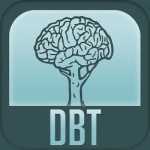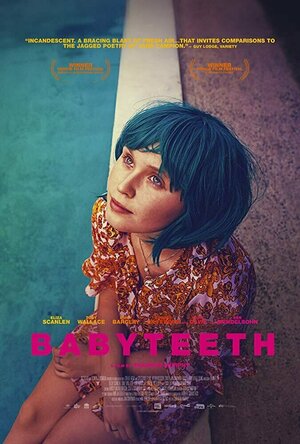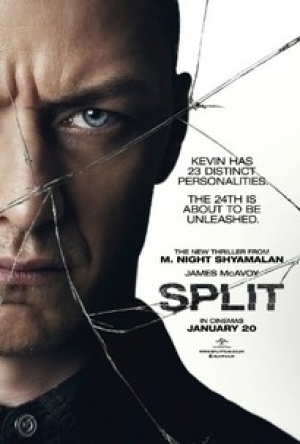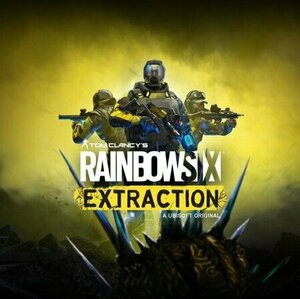
Instant Heart Rate: HR Monitor
Health & Fitness and Medical
App
The most accurate and easy-to-use heart rate app - Get your heart rate in less than 10 seconds -...

myFitnessSync for Fitbit - Fitbit to Apple Health
Health & Fitness and Utilities
App
myFitnessSync downloads your entire Fitbit history from Fitbit.com and stores it on your iPhone in...

iFart - The Original Fart Sounds App
Entertainment and Utilities
App
You’ve discovered the Original and World Famous iFart™ App. An Apple All-Time TOP 20 App. The...

DBT Diary Card and Skills Coach
Health & Fitness and Medical
App
DBT Diary Card is the only DBT iPhone app designed and created by a licensed and DBT intensively...

MyKeto - Low Carb Keto Tracker
Health & Fitness and Reference
App
What is the Ketogenic Diet? The Ketogenic diet is a fast-growing low carbohydrate, high fat (lchf)...

Instant Heart Rate+ HR Monitor
Health & Fitness and Medical
App
The most accurate and easy-to-use heart rate app - Get your heart rate in less than 10 seconds -...
Bob Mann (459 KP) rated Babyteeth (2019) in Movies
Aug 25, 2020
Eliza Scanlen plays Australian schoolgirl Milla, displaying typically rebellious symptoms of adolescence but hampered by a crippling medical issue. She meets a 23-year old drug addict, Moses (Toby Wallace), and the pair feel an immediate pull towards each other, much to the horror of her parents Henry (Ben Mendelsohn) and Anna (Essie Davis). The kids are dysfunctional (for different reasons); the parents are not much better. Adding to the drama is a strange violin teacher (Eugene Gilfedder) and a pregnant (MILF-to-be) next door neighbour (Emily Barclay). We follow the life and love of Milla as she struggles with her circumstances... and the last of her Babyteeth.
I can draw parallels here to the movie "Animals" from last year. Indeed to the Oscar-winner "Moonlight" from four year's ago. I could readily perceive it to be intelligent and artfully produced. But I'm afraid I felt zero empathy or pull from any of the characters. Given that, and the slow burn of writer Rita Kalnejais's screenplay, I found myself constantly looking at my watch for the last half-hour of the movie.
The movie's not without its merits though. Babyteeth has picked up a number of nominations, and as many wins, on the international film-festival circuit, mostly for the direction of Shannon Murphy. This is a first-time feature for TV-director Murphy (she directed two episodes from this year's series of "Killing Eve" for example). Awards have also gone to Toby Wallace for his portrayal of the slightly unhinged and unpredictable Moses. But for me, it was Eliza Scanlen's performance as Milla that appealed to me most and kept my attention. Other-worldly and slightly ethereal, she pulls off the role well. Scanlen was of course Beth March in the recent superb version of "Little Woman". (She's a young lady with great potential, but she needs to be careful not to get typecast as sickly waifs!)
Babyteeth was for me a curate's egg in the photography department. Cinematography was by Andrew Commis, and I found it both breathtaking and frustrating in almost equal measure. There's a scene towards the end of the movie with Milla's face half-lit in the moonlight that was reminiscent to me of the star-child in "2001: A Space Odyssey". Simply gorgeous. And scenes in a nightclub are both strangely and effectively shot. But - and art-house movies seem to mandate this approach - the movie is shot on handheld cameras. This makes a lot of the shots drift in and out of focus. Moreover - and most frustratingly for me - it makes the multitude of scene titles, employed in the telling, float ever-so-slightly against the backgrounds, with a generally nauseating effect.
I'll no doubt feel a right Charlie if Babyteeth gets into the Oscars nominations short-list. But for me, it just wasn't engaging enough to be entertaining. It's billed as a "Comedy Drama". While there were a few good comic lines, it rarely made me do more than smile. And as for the drama, I'm afraid tears were far from being spilled. It's in no way a "bad film": it just personally wasn't for me.
(For the full graphical review please check out One Mann's Movie on https://bob-the-movie-man.com/2020/08/25/babyteeth-you-might-have-more-fun-at-the-orthodontists/.)

Shooter Assist
Sports and Education
App
This app was created by a US Army Soldier who served on his company's Sniper team in Afghanistan as...
Bob Mann (459 KP) rated Split (2016) in Movies
Sep 29, 2021
James McAvoy plays Kevin… and Dennis, and Patricia, and Hedwig, and Barry, and Orwell, and Jade, and… if the running time permitted… another 17 characters. But this is no “Kind Hearts and Coronets”: McAvoy plays all these varied personalities in the same body. For Kevin suffers from Multiple Personality Disorder, a rare condition where his different schisms not only affect his speech and attitude but also his whole physique. One personality for example is diabetic and needs insulin: all his others are fine.
Under the care of MPD specialist Dr Karen Fletcher (Betty Buckley, “Carrie”), Kevin seems to be making good progress. But all is not as it seems. Dennis, one of the more evil of Kevin’s personalities, has kidnapped three teens – Claire (Haley Lu Richardson), Marcia (Jessica Sula) and Casey (Anya Taylor-Joy) – and is holding them captive in his home.
It’s all going so well. Kevin (James McAvoy) getting much needed treatment from Dr Fletcher (Betty Buckley).
While Claire and Marcia are good friends, Casey is the wild-card in the pack: a moody and aloof teen that doesn’t fit in with the crowd. We see the abduction unfold largely through her intelligent and analytical eyes, with her experiences causing flashbacks to hunting trips in the woods as a five-year-old child with her father and uncle.
This is McAvoy’s film, with his different personalities being very well observed and the scenes where he switches from one to the other being particularly impressive as piece of acting. Of the youngsters, Anya Taylor-Joy is the most impressive, with the denouement of her particular sub-plot being my favourite part of the film.
Shyamalan, who also wrote the script, is treading a well worn cinematic path here (since often the MPD element is the surprise twist, to list any films here inevitably risks major spoilers – – but there is a decent list here). But this is a film that seems to have generated a lot of interest, particularly with a younger audience (I have seldom been quizzed more with the “Ooh, have you seen this yet” question). As a result this may be a modest sleeper hit.
Girl pray or Girl prey? Casey deep in the psycho’s lair.
Where I think the movie missteps is in its casting of the three cute and scantily dressed teens as the abductees. From the plot of the film that emerges this appears to be unnecessary and exploitative, especially since they are made to progressively dis-robe as the film progresses. The film would actually have been made more interesting if a family unit, or at least a mixed variety of individuals, had been taken.
Marcia (Jessica Sula) doesn’t necessarily appreciate the floral gift.
Unfortunately Shyamalan also over-gilds the lily for the finale by going from medical improbability into outright science fiction: and dilutes what was up to that point a stylish thriller. As a result it’s a decent popcorn film, and worth seeing for McAvoy’s clever performance, but its not going to go down in my book as a classic.
Watch out by the way for a nice final cameo scene: a clever reference to past glories.
Gareth von Kallenbach (980 KP) rated the PC version of Tom Clancy's Rainbow Six: Extraction in Video Games
Jan 26, 2022
The series features intense squad-based action as players form teams to infiltrate, extract, eliminate, and survive various missions.
Using stealth, tech, weapons, and patience; players have to find the best way to enter a location, avoid or eliminate enemies, and complete objectives while working as a cohesive unit.
This time around the enemy is a parasitic alien race and players must form three-person squads or venture through the locales solo or with a single partner.
Players will select an operative; each with a primary and secondary weapon and two tactical devices such as grenades, mines, revive shots, armor, and drones. As time goes on and players level up; new technology can be researched and used as having the right loadout is essential. Players will also have unique skilsl ranging from gun emplacements, medical, cloaking, and more which can be used in a limited situation and must be replenished as the missions unfolds.
Missions are set in three zones such as New York, San Francisco, Alaska, and more become available as players reach a certain level and naturally they become progressively harder and more intense.
Each zone has random missions and when players select a locale, difficulty level, and their operative; they will encounter missions ranging from elimination, extraction, scanning, and targeting specific strategic locales.
The enemy is very cunning and ruthless and can cloak, shape-shift, and explode amongst their myriad of hostile actions, and players must attack, evade, and work with one another to complete the missions and survive. At the end of a level; players can opt to enter an airlock and move to the next segment or return to an exfiltration zone to end the mission.
This is where the real tactics of the game come into play as health is limited as can be ammunition so players who encounter a difficult mission where they sustain damage or lose a player have to make a hard choice. Players do not die in the game as they are enveloped with a stasis foam should they sustain enough damage.
As such the remaining team must decide to carry the downed player to an Extraction Pod or leave them behind so they can carry on or they can flee to safety. This is not always an easy decision as seeing your team decimated and barely making it to safety with only a small amount of health makes even the most determined player think twice about venturing back in.
Should a player be lost; their experience is deducted from the player and will remain deducted until the character is rescued on a future mission. Seeing your roster of skilled Operatives reduced to a couple of unproven newbies is very humbling and thankfully the maps are very detailed and engaging as players will get very used to playing in the locales frequently before new areas are made available to them.
The action of the game is intense as players can use stealth or run and gun depending on the mission and the variety of enemies and missions is good.
I do wish the Quick Play would allow players to select the skill level they would like to play in and that there was a server list to select from; that being said; at $39.99 and available on Game Pass; Rainbow Six Extraction is a great deal as the cross-play enabled game ensures plenty of players to venture into danger with but like the best games of the series; having the right group of players is essential as I have lost many players due to wild cards not following mission objectives.
Intense, engaging, and deeply entertaining; Rainbow Six Extraction delivers even if it does differ from what fans have come to expect.
4 stars out of 5


